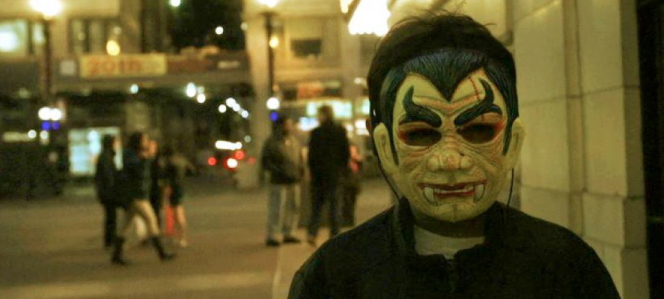While I was at the gym a few days ago listening to my Spotify account in my earphones a song came up as a suggested listen from the songs I had listened to previously. At first the song starts off like many good rock songs but then as I began to hear the lyrics I was blown away at the depth that was found within. The song is entitled “Coconut Dracula” by a band named Islander.
I had never heard of the band or any of their previous songs. So I did a little digging and within this one song I found some amazing glimpses of the divine action, even within a setting while looking at the surface shouldn’t be all that luring. The song starts off with an individual lamenting about how another individual is living better than himself.
You don’t see the world the way I do
Your eyes
They no longer search for truth
because you found it
I don’t feel used when I’m with you
I don’t feel abused when I am with you
The person sees a change in another individual. Something strange. Something unique that has now piqued the interest of the poet. He then continues:
You’re not out for blood
You only want what’s beautiful
You’re not out for blood
You’re in love with truth
The poet is entranced by the other’s draw towards beauty and truth and thus his desire for hurting or abusing another is utterly demolished.
I wanna be someone more like you
someone more like you
I wanna be someone more like you
Coconut DraculaI want my eyes to be like yours.
I want to know what defines my worth.
Oh please, can you tell me?
I don’t feel used when I’m with you
I don’t feel abused when I’m with you
Through his engagement with an individual that has a pure desire for beauty and truth, the poet now wants to not only engage but embrace the same lifestyle as the other. That’s the incredible part of this lyric. Purely through a glimpse of how beauty has changed another, a person desires to become likewise entranced. I then did a little digging on why the song, and the character of beauty is called the “Coconut Dracula”. The writer of the lyrics revealed the story which inspired the song. The story behind the song is that Count Dracula comes across a coconut and takes a bite. The sweetness in that bite makes him realize that there is beauty and goodness in the world. So he changes his name to Coconut Dracula and starts doing charity work and growing a garden. He is roommates with other monsters and the Mummy sees the change in Dracula and decides he wants to be more like him. The Mummy represents someone who is dead inside that wants to learn how to see the good things the world has to offer. The song is written from the Mummy’s point of view asking Coconut Dracula to teach him how to change the way that he did.
What I found so stirring is that the story resonates so much with the expression of faith and the lasting legacy of Von Balthasar and Dostoyevsky. Within a seeming lost situation, that of the undead, those residing in the world without hope, it took but a taste of goodness and beauty to change the heart and will of the partaker and from his experience he now expresses the love he wishes to convey and thus causes another ‘convert’ to the road of beauty. This resounds so well with Dostoyevsky’s character Prince Myskin, a Christ-like figure in the phenomenal work The Idiot. Myskin, an almost laughably hopeless character stricken by disease brings light into the darkest of situations with his moniker of hope and joy. The famous line, “Beauty will save the world”, comes as a motto for the entire work, as Myskin is surrounded by suffering and hatred, art and the expression of spiritual and physical beauty is presented as the course for a revival of hope and love in a world gone wrong. Dostoyevsky argues that it is beauty, even that of a dead savior in a tomb, which can enliven faith, for if a savior is willing to embrace the dankest, most fetid aspect of a fallen nature then not only can we trust that he loves us but there is great hope and beauty because our savior is unafraid to surround himself by the lost and forsaken. Even the most desperate of society, the “undead” if you will, are engaged by such an invitation to embrace and express beauty in a seemingly hopeless situation.
I thoroughly enjoyed listening to this incredible display of the divine within the culture. Art, and most importantly the struggle to liberate authentic beauty for all to see, is an aspect that must continue searching for that which satisfies the hungry heart. While Islander may have not meant to express such a truly Catholic aspect of humanity, it is a sure witness that our hearts are made for something greater than us, and the surest, most sought-after path is that of beauty, which we often find in the most unexpected places. While we are indeed wrapped in a struggle for purity in a fallen human nature, Christ invites us to “take a bite” of the vastness of beauty offered by his passion, death and resurrection. Once we take that bite, much like Dracula did of the coconut, it must change our lives, and it must cause in us such a radiant light, that we can’t help but express that love and beauty to others through our words and our actions. Indeed Myskin is right. In the mission of Christ we see that beauty has saved the world.
